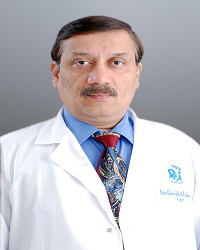Search Result: 4

Dr Girish N Kulkarni
MBBS, DLO, DNB
Registration No
67849
Language
English

15 years experience overall

Kuvempunagar , Mysore
MON- SAT(10:00 AM-06:00 PM)

Registration No
665792
Language
English, हिंदी, ಕನ್ನಡ

21 years experience overall

Kuvempunagar , Mysore
MON- FRI(11:15 AM-11:45 AM)

Dr Neethu Priya K
MBBS,MS (ENT)
Registration No
6493437
Language
English

6 years experience overall

VV Mohlla , Mysore
MON- SAT(11:00 AM-12:00 PM)

Dr Praveen Kumar R
MBBS, MS(ENT)
Registration No
644541
Language
English, हिंदी, ಕನ್ನಡ

15 years experience overall

VV Mohlla , Mysore
MON- SAT(06:30 PM-07:30 PM)
Frequently Asked Questions for Thyroidectomy in Mysore
Yes, thyroidectomy is considered a clean surgery. Surgeons follow strict sterilisation protocols to minimise the risk of infection. However, as with any surgical procedure, there is always a small risk of infection or other complications.
In some cases, thyroid surgery may be avoided by using alternative treatments such as medication or radioactive iodine therapy. However, this depends on the specific condition and should be discussed with your doctor.
The best treatment for thyroidectomy depends on the specific condition being treated. Thyroidectomy is typically recommended for thyroid cancer, large goitres causing symptoms and certain cases of hyperthyroidism. Your doctor will suggest the most suitable course of treatment for your needs.
Yes, you can talk after thyroid surgery. However, there may be some temporary hoarseness or changes in voice quality immediately following surgery. This usually resolves over time as the body heals.
Yes, most people can live a normal life after thyroid removal. However, they may need to take medication to replace thyroid hormones and schedule regular follow-up appointments with their doctor to ensure optimal health.
Yes, thyroidectomy is considered a major surgery as it involves the removal of part or all of the thyroid gland. Moreover, it requires general anaesthesia and may have potential risks and complications associated with any surgical procedure.
The eligibility criteria for thyroidectomy depend on the underlying condition being treated. Your doctor will evaluate your medical history, perform necessary tests, and determine if thyroidectomy is the most appropriate treatment option for you.
The duration of thyroidectomy depends on the complexity of the surgery. On average, the procedure can take up to four hours.
Several hospitals have specialised departments for head and neck surgery or endocrine surgery, making them excellent choices for thyroidectomy. Researching hospitals that have a strong reputation in these areas can help you find the best one for your needs.
After thyroidectomy, you may require medication to replace thyroid hormones. You will also need to monitor your incision site for signs of infection and follow up with your doctor for regular check-ups. Taking adequate rest, ensuring proper nutrition, and avoiding strenuous activities are important during the recovery period.
Preparation for thyroidectomy may involve blood tests, imaging studies, and medication adjustments. Your doctor will provide specific instructions on fasting before surgery and any other necessary preparations.
The recovery time for thyroidectomy varies depending on the extent of the surgery and individual factors. Generally, most patients can expect to spend a few days in the hospital after the procedure and may need two to three weeks to fully recover at home.
The success rate of thyroidectomy is generally high, with most patients experiencing relief from their symptoms and successful treatment for their condition. However, the specific success rate can vary depending on the underlying condition being treated.
You can find the best doctors for thyroidectomy by doing online research, reading patient reviews, and seeking referrals from your primary care physician or other trusted sources. It is important to choose a doctor who has experience and expertise in performing this procedure.
A surgeon who specialises in head and neck surgery, known as an otolaryngologist or ENT (ear, nose, and throat) surgeon performs thyroidectomy. These doctors have extensive training and experience in performing thyroid surgeries.
Thyroidectomy is a surgery that is performed to remove all or part of the thyroid gland. It is commonly done to treat thyroid cancer, hyperthyroidism, or large goitres that cause difficulty in breathing or swallowing.
A doctor who performs a thyroidectomy should be a qualified surgeon specialising in head and neck surgery or endocrine surgery. They should have received specialised training and have experience in performing this procedure.
Related Procedures in Mysore
Other Specialities in Mysore
- Best Urologist in Mysore
- Best Pulmonologist in Mysore
- Best General Physician in Mysore
- Best Endocrinologist in Mysore
- Best Cardiologist in Mysore
- Best Oncologist in Mysore
- Best Radiologist in Mysore
- Best Orthopedics in Mysore
- Best Hepatologist in Mysore
- Best Gynecologist in Mysore
- Best Dermatologist in Mysore
- Best Gastroenterologist in Mysore
- Best Psychologist in Mysore
- Best Ent Specialist in Mysore
- Best Nephrologist in Mysore
- Best Rheumatologist in Mysore
- Best Diabetologist in Mysore
- Best Psychiatrist in Mysore
- Best Neonatologist in Mysore
- Best Dentist in Mysore
- Best Dietitian in Mysore
- Best Haematologist in Mysore
- Best Pediatrics in Mysore
- Best General Surgeon in Mysore
Top Hospitals in India
- Hospitals in Ahmedabad
- Hospitals in Bangalore
- Hospitals in Bhubaneswar
- Hospitals in Bilaspur
- Hospitals in Chennai
- Hospitals in Delhi
- Hospitals in Guwahati
- Hospitals in Hyderabad
- Hospitals in Indore
- Hospitals in Kolkata
- Hospitals in Madurai
- Hospitals in Mumbai
- Hospitals in Mysore
- Hospitals in Nashik
- Hospitals in Noida
- Hospitals in Visakhapatnam
- Hospitals in Lucknow
- Hospitals in Bhopal
- Hospitals in Karur
- Hospitals in Kochi
- Hospitals in Nellore
- Hospitals in Trichy
- Hospitals in Kakinada
© Copyright 2024. Apollo Hospitals Group. All Rights Reserved.
 +91 8069991061
Book Appointment
+91 8069991061
Book Appointment






 Call Now
Call Now




